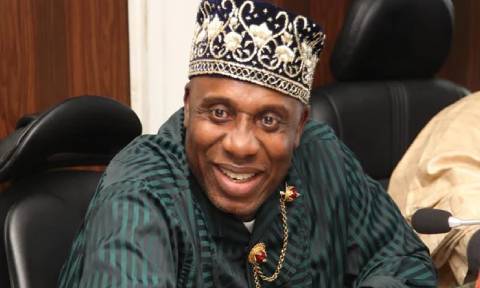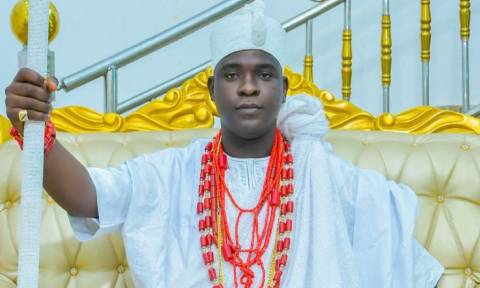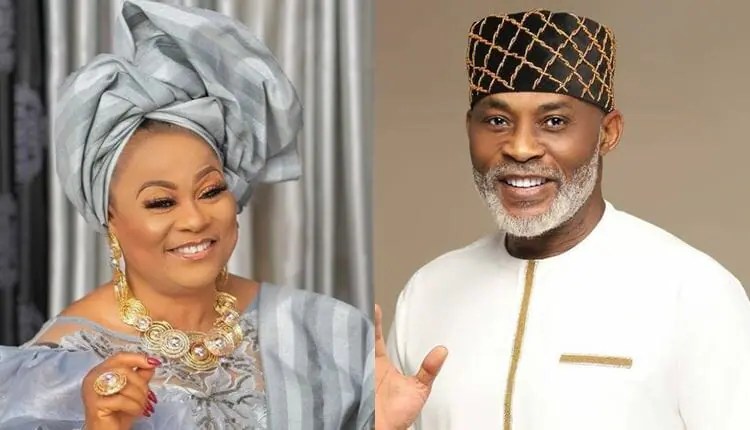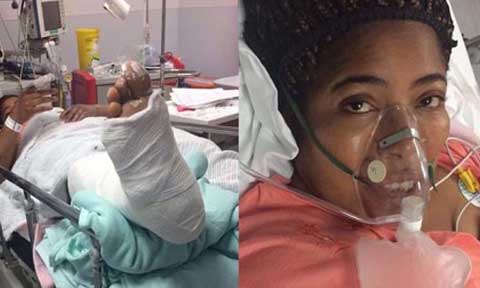
Adewale Oshodi writes on the death of ace actor, playwright, poet and academic, Dr. Femi Fatoba, in an auto accident last week in Delta State, thereby capping a terrible year for Nigerian artistes.
It’s another period of grief for those in the creative industry in the country as another re-nowned actor, Dr. Femi Fatoba, ended his sojourn on earth in a ghastly auto accident on Saturday, December 20, 2008, along Ughelli/Patani road in Delta State.
Until his death, Dr. Fatoba, a retired lecturer at the premier university, University of Ibadan, taught at the Niger Delta University, Wilberforce Island, Bayelsa State and it is believed he was travelling back to Ibadan from Bayelsa when he met his untimely death, alongside some of his colleagues at the university.
Known for his clean-shaven head and bearded face, Dr. Fatoba had appeared in a number of movies, especially classical films produced by Mainframe, a Yoruba movie production company.
Dr. Fatoba, though an academic, was a man of many parts. He was a professional actor, poet, and even, a painter. He was a man in love with arts generally.
In one of his most creative roles in films, Fatoba was a white-garment priest in O le ku, a Yoruba movie produced by Mainframe, where he gave a scintillating performance.
The Ekiti State-born theatre scholar interpreted excellently how white garment priests act when delivering the message “from God” to recipients.
In the film, Asake’s father (Lere Paimo) approaches his friend, a priest (Fatoba) seeking his help. Asake’s father tells the priest that he will send his daughter, Asake, to him to confirm who her future partner will be.
“The help” is, therefore, for the priest to tell Asake that none of the names she has is good enough for her as a husband. Asake’s father further informs the priest to counsel Asake not to rush into marriage but face her studies and after her university education, she can get married.
Fatoba’s performance as the priest was excellently interpreted. His body language and facial expressions passed across a message to the audience that himself, as the priest, and Asake’s father (Paimo) are more than ordinary friends.
This comes to light when Asake’s father asks the priest how his church is doing, especially, in respect of attendance. He tells the priest there is something more to do to increase the number of worshippers in the church – here, it means fetish solutions.
And when Asake visits the priest, the way and manner he (Fatoba) delivers the message shows how fake priests have mastery of the workings of real men of God – this was Fatoba at his best.
A widely-travelled man, Fatoba had deep passion for the arts and that was why, despite his demanding work as a lecturer, he still found time to express himself through acting.
While most of his friends and colleagues like Prof. Niyi Osundare, Prof. Femi Osofisan, among others, have expressed shock at the demise of the late scholar, Arts and Review, however, met some of his former students at the University of Ibadan to enquire what type of man he was.
For Femi Ogundeji, late Dr. Fatoba was a very strict lecturer. “He was strict with marks and students found it very difficult to score high marks in his courses.”
“I could remember when I took History of World Theatre, the person who scored the highest mark in class had 48 per cent. This will tell you how strict he was,” Ogundeji stated.
Another former student of the late lecturer, Stephen Gbadamosi, described him as someone who was very humorous.
Gbadamosi said though he was a very strict man who was also very discipline, his classes were very lively and everybody often looked forward to having him around because he was such a very jovial and funny person.
“There was a time a student asked him how easy it was for him to play the role of a priest in O le ku, and his response was that as a professional, he could perform any role with ease”, Gbadamosi said.
In an interview the late Fatoba granted a couple of years ago, the theatre guru spoke about his love for writing as well. He said through writing, he could express his mind about different issues surrounding mankind.
He stated that there were many things within the society he could not come to terms with and writing gave him the opportunity to let readers know there are people who think differently from how things are being done in this country.
While speaking on democracy as it is being practised in Nigeria since the country returned to civil rule in 1999, Dr. Fatoba asked: “We have democracy, but are things the way they should be?
He questioned why Nigerians would be paying high for oil when the country is one of the top oil producers in the world.
Dr. Fatoba was a victim of government’s insensitivity to the decaying infrastructure in the country – this is because if Nigerian roads are in good shape, the accident that claimed his life and those of other scholars, might not have happened afterall.
But that is not to be, and for Dr. Femi Fatoba, it’s goodnight, as the curtain draws on another talent in the creative industry in the country.



















